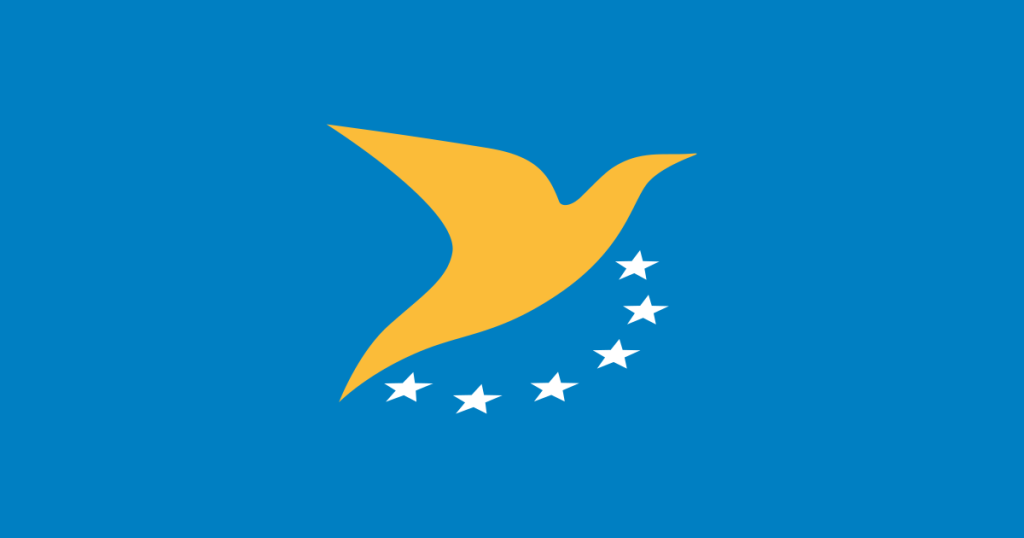Basing U4U’s actions on principles and values

U4U has drawn up a document, the foundation of our identity, which summarizes our uniqueness and articulates our program and guidelines: U4U Principles and Values. This document is a reference for those who wish to join U4U. To become a member is to adhere to the union’s approach, as set out below.
- A Citizen and European union
- U4U is a civic-minded, European trade union that places employees’ participation at the heart of its work. We always work in a spirit of constructiveness and transparency. Staff are kept informed of our texts, proposals, and results (e.g., the monthly newsletter “Le Link”, website), and can discuss them at our internal or external conferences and meetings.
- European construction is at the heart of our raison d’être. We clearly link our union action to the European project. Through the regular publication of the think-tank magazine GRASPE, regular training courses and seminars on issues of European interest, and the documented elaboration of constructive proposals, we are constantly acting in the interests of the European project.
- Our proposals are not only useful to the staff, but also to the institution, as one cannot go without the other.
- A union in favour of unity
Unity makes us stronger. We are fighting for staff unity, to create solidarity between all categories and professions.
- A union committed to diversity and equal treatment
- We fight for a policy of diversity and inclusion in all its dimensions. Whether societal, social, or cognitive, inclusion values diversity and advocates an approach in favour of equal treatment for all European civil servants. Acknowledging the intersectionality of diversity means fighting against all forms of discrimination in the workplace and acting to unite the workforce.
- U4U acts with concrete proposals to combat precarious situations, disparities, and discrimination.
What unites us is a common European culture of solidarity and respect for diversity.
- A union with a holistic approach to our business
- We are opposed to opening up our Staff Regulations, which would lead, as in the past, to unfavourable reforms in all aspects of staff working conditions and remuneration. Further reform would weaken the European civil service.
- We are striving for active, participative management of staff careers. The administration must resist the temptation to do more with less, respect each of our professions and recognize the quality of our work.
- We also work to protect wages, health, social security, promotion, and pension conditions. We’re also here to help you with all the procedures you need effective support with. In doing so, we take care of all our working conditions.
- We defend the statutory right to care for our children in crèches, kindergartens, nurseries, and European schools. We advocate quality educational provision for all, in all places of employment, with sufficient resources for its implementation.
- A union committed to effective, constructive social dialogue
High-quality social dialogue reflects a society governed by values of mutual respect and partnership. It is also in line with the recommendations of the Charter of Fundamental Rights of the European Union and the European Social Charter (principle 8).
- We are calling for an improvement in the resources available to staff representatives, and a strong resumption of social dialogue with management.
- The scope of social dialogue must be broadened to cover all aspects of our working life (including, for example, budgetary issues, mobility policy, buildings policy, European schools, etc.).
- Social dialogue cannot be limited solely to “top-down” consultations between the administration and the Staff Committee and trade unions, or to “pulse surveys” launched by the administration to all staff. Staff expression must be made possible at all levels of the institution, in all departments and services, as close as possible to colleagues. In the same vein, the agenda for social dialogue should also be set by proposals from staff representatives, or by staff themselves, based on the conclusions of meetings at which employees express themselves directly and collectively.
The strength of our union team lies in taking responsibility based on a unique commitment, team spirit and merit, disconnected from any administrative reference to status (END, JPP, trainees, local agents, AC, AT, civil servant, ASN) and grades (AST-SC, AST, AD, GF).
U4U : Our guidelines

Our programme (read it here)has been revised over time (see below) on the basis of new thinking and practices, while remaining true to our identity.
Based on an analysis of the political situation and the challenges facing the institution and its staff, we now propose 5 priority areas of work. These areas may be supplemented or modified as the context and staff preferences evolve.
The first priority is to defend European integration, the durability of its institutions and a budget that will enable us to meet today’s challenges. As far as the Staff Regulations of the European Civil Service are concerned, our approach is to oppose their amendment: we believe that the situation of staff can be improved without changing the Staff Regulations.
The second priority concerns the fight for equal treatment, which is at the heart of our project: inclusion of diversity, reduction of precarious situations, career development opportunities, mobility, etc. Despite the progress made, equality and diversity are not always a reality in our institution. The fight against inequality and job insecurity enables U4U to promote the emergence of a human community of values and interests. This is something we must constantly strive for because division weakens and hinders the proper performance of the tasks entrusted to us.
The third priority concerns working conditions and working methods.
The digitalisation of work raises fundamental issues that are not always understood or addressed. It is also accompanied by a reduction and depersonalisation of the workplace, which raises questions in practice. As a result, the voluntary, flexible, and variable nature of teleworking is called into question, even though it is a central element in the efficient performance of tasks. Teamwork, cooperation at work and the conditions necessary to encourage informal exchanges, which are a source of creativity and team cohesion, are made more difficult. The well-being of staff is reduced.
The fourth priority is to improve our healthcare system while maintaining its balance. This means, of course, increasing the amounts reimbursed to members, but not only that. It also means increasing the scope of reimbursable care, making certain rules more flexible and improving the system of equalisation coefficients.
The fifth priority concerns social dialogue and its governance. This needs to be improved, and the time allocated to negotiations on the various issues needs to be sufficient to ensure that they are dealt with thoroughly and to a high standard. Finally, social dialogue must be extended to all institutions, agencies, and departments. The subjects of social dialogue must be broadened. This dialogue must also be based on the results of the annual “Direct and Collective Expression of Staff”. The experience gained in this area in Barcelona (F4E[1] ) and Cologne (EASA[2] ) demonstrates the value of this exercise and its usefulness in improving matters.
[1] F4E European Regulatory Agency “Fusion for Energy” in charge of the European contribution the ITER project (fusion energy) (Barcelona)
[2] EASA European Aviation Safety Agency (Cologne)
Follow-up of the action for Ukrainian refugees in Brussels


Follow-up of the action for Ukrainian refugees in Brussels
Major successes and developments….

With the support of the food bank Brussels-Brabant A.S.B.L.
The action Ukraine EU aims to offer a food support of first necessities to the people having fled Ukraine because of the current conflict.
The aim is to offer families basic assistance for the first few months, but also support to enable them to better integrate into the Brussels-Capital Region.
Following an extension of the possibility of occupying the rue de Theux, 49 premisses the action continues! It’s a real success, with a drop in the number of applicants. What has already been achieved :
1. A warehouse, which we have fitted out, has been lent by the municipality of Etterbeek;
2. Fridges and facilities were lent by the OIB for storage;
3. Collections were organized by the OIB services in the EC mailroom;
4. Toys for the little ones and books were distributed;
5. Language courses have been set up to help the integration and autonomy of the refugees;
6. The Food Bank has joined the action and continues to support it actively.
All this, as always, with 0.00 € of management fees
Novelties: while the number of requests for basic necessities is declining, other needs are emerging.
For refugees who have already integrated, it is vital to be able to benefit from language courses. Our action therefore evolves with the needs and offers courses in English, French and Dutch organized by retired colleagues. These courses are aimed at children and adults alike, and will be up and running in October.
These courses are also a way for families who have fled their country to meet and socialize with each other. As always, this is only possible thanks to the donations and voluntary work of colleagues, the voluntary work of Ukrainians in solidarity, and the support of the Etterbeek administration and municipality.
Last but not least, a very big thank you to the Office for Infrastructure and Logistics in Brussels (OIB) for the storage, logistics and furniture provided.
This is only possible thanks to the voluntary work of colleagues, the voluntary work of Ukrainian solidarity, the support of the administration and the Commune of Etterbeek.
Last but not least, a very big thank you to the Office for Infrastructure and Logistics in Brussels (OIB) for the storage, logistics and furniture provided.
To give directly to the action:
« Action Ukraine EU » BE20 0017 6787 9156
To give directly in kind:
Drop off your non-perishable foodstuffs in the EC’s mail room with the mention “For the Ukraine action“. The delivery will be made on rue de Theux, 49 thanks to the colleagues of the central mail of the OIB
Joint Sickness Insurance Scheme: review of reimbursements has started

First amendment to the General Implementing Provisions (GIP): a decision in the pipeline as a first step in the revision of the GIP
After a lengthy negotiation process, the reimbursement GIPs are to be amended. The decision is in the pipeline and should be adopted quickly.
Firstly, this amendment ensures that MAP is better taken into account. U4U has been fighting for this for a long time and it’s a big step forward. Until now, fertility treatments have only been reimbursed in cases of pathology (broadly speaking, cancer). The Medical Council’s decision was based on the theoretical argument that the scheme reimburses health costs and therefore an illness. It should be noted that this is not necessarily the case, as the JSIS also reimburses preventive treatments, vaccines, etc.
We are very happy for all our colleagues who are or will be affected.
This amendment to the GIP also includes an increase in two key ceilings: the ceiling for specialist practitioners from €35 to €42 (Brussels basis) and the ceiling for family doctors from €50 to €64 (again Brussels basis).
Finally, other ceilings complete this modification.
- Fixed dentures increase from €250 to €350
- Hearing aids from €1,500 to €1,800
- Incontinence pads range from €600 to €1,320.
U4U welcomes these increases, which are certainly not enough, but are a first step in reviewing our GIP.
U4U would like to take this opportunity to remind you of a little tip when submitting a claim for reimbursement from a specialist. Let’s take a concrete example: you go to an optician (or gynaecologist) and he or she carries out some tests (e.g. an eye test or an ultrasound). When you pay, you pay, for example, 100 euros. This €100 covers the fees and the tests carried out, the code of which appears on the INAMI certificate you receive. To ensure that you are correctly reimbursed, you should therefore code your receipt as an analysis and examination and not as a specialist consultation. Using the codes on the certificate, the PMO will then be able to identify the tests carried out and reimburse them accordingly (i.e. above the current ceiling of €50 or the future ceiling of €64).
EASA Regulatory agency: dialogue continues and deepens

Planning the new cycle of social dialogue
In accordance with the Framework agreement on Social Dialogue within EASA and following the EASA/U4U meeting on 15 September 2023 (The Link n°102), it was agreed to launch a new cycle of Social Dialogue meetings.
On 23 October, another meeting was held between EASA and U4U, attended by a representative of the Staff Committee, with the main aim of planning the second round of social dialogue.
The meeting began by confirming that the various agreements reached during this cycle of U4U/EASA social dialogue meetings had been correctly applied, particularly with regard to the evaluation and reclassification exercise, for which the administration and the Staff Committee had worked together to achieve positive results. Against this background of change, U4U nevertheless asked for a joint committee to be set up to monitor the evaluation and reclassification exercise, in order to take stock of the exercise, reflect on its results and make recommendations for the future. The administration has agreed to set up this monitoring committee.
As reported at the last meeting, the results of the exercise to assess the direct and collective expression of employees, together with the 2022 employee survey, have made it possible to define the topics to be addressed at the forthcoming social dialogue meetings.
U4U has identified 7 key concerns of EASA staff to be discussed in the forthcoming social dialogue with a view to reaching concrete agreements:
- The workload of EASA staff: U4U’s aim, in conjunction with the administration, is to obtain additional human and financial resources, since the inadequacy of the Agency’s human resources has finally been recognised by the Commission. However, U4U is concerned about the creation by the Member States of a task force within the agencies to assess the needs of each of them and will pay even more attention to the interim report due in December 2023;
- The conditions for reimbursement of tuition fees at international schools in Cologne: U4U’s aim is to re-evaluate these conditions for new arrivals, without penalising those who have already arrived;
- Career development: U4U works to promote mobility between European agencies;
- Career prospects within EASA: U4U advocates an in-depth reflection on concrete career prospects, giving priority to the identification of needs in order to allow internal movements in full transparency;
- Internal communication within EASA: U4U recommends improving communication with staff, who are calling for greater transparency on decisions taken and the context in which they are taken;
- Teleworking: U4U suggests revitalising management to better understand the decentralisation of work;
- Working conditions: U4U proposes an audit of working conditions to enable the administration to commit to concrete improvements.
At the end of this social dialogue meeting, it was agreed to launch the new cycle of U4U/EASA social dialogue meetings at the end of 2023 to address the issue of workload and reimbursement conditions for international schools, in accordance with the framework agreement on social dialogue within EASA.
Don’t forget that this social dialogue cannot take place without you: your feedback is valuable to us.
Together we can solve the problems of the present, improve our future, and move forward together!
Our organisation will continue to defend staff and the European public service.
Tested for you: medical claims via your smartphone

As staff representatives, we sometimes receive requests from colleagues who are late in submitting their claims. Unless there is a valid reason (force majeure) for a delay of more than 18 months, claims are rejected.
Are you the kind of person who keeps certificates in your wallet, bag or envelope and finds submitting claims a chore? Are you the kind of person who tends to forget them and therefore miss out on a refund?
A good way to avoid these inconveniences is to try the PMO Mobile application. We did it for you and we have to admit that it makes life easier.
At the same time as the doctor gives me the certificate, I take a picture of it. Then I use my application to create my claim (the little + on the bottom right) and attach the photo. The next day I get a statement saying that the reimbursement is in process. Simple, fast and efficient.
And that’s not all: I can consult all my claims and accounts at any time and follow their progress. I can access my RCAM insurance certificates, create new ones, request cover, report an accident… I can even ask a question with a single click on the application.
If you connect from your computer, a QR code will allow you to install the application.
Want to try it out? Follow the guide!
How to make PMO Mobile saving your time?

The app does not require downloading and cannot be found in commercial app stores. It is web-based and is easily accessible from all commonly used web-browsers by scanning the QR code or by entering https://webgate.ec.europa.eu/PMOMOBILE .
PMO Mobile is also available in EC on the GO. Once in the app, you can bookmark it or add it to your favourites for faster access.
To secure your private data, PMO Mobile is protected by multifactor authentication. This video shows all the available options to authenticate and how each of them works.
More info:
PMO Mobile user guides EN
PMO Mobile FAQ EN
Salaries: German public sector unions are demanding further pay rises of between 12% and 18%

Record inflation in Germany in recent months, peaking at 10.4% year-on-year in October, has strained annual wage negotiations and led to strikes in several sectors.
Last May, state and local government employees in Germany received a gradual pay rise to compensate for inflation, following a collective bargaining agreement with the federal government. Around 2.5 million state and local government employees will see their pay rise by 5.5%, or at least €340 a month, from March 2024. From June 2023, the tax-free inflation compensation of €3,000 will be paid in several instalments.
After failing to get full satisfaction for its demands, the German public service union Verdi is demanding another pay rise of between 12.5% and 18%, this time for the 1.2 million employees of the federal states (Länder).
There are two important elements to highlight in this new union demand and previous agreements. The first is the labour shortage. The German civil service has 300,000 vacancies that are not being filled. Several thousand civil servants are leaving their jobs in the big cities (Hamburg, Bremen, etc.) and moving to other regions where the cost of living is lower, and the jobs are better paid. There is a kind of “cannibalisation” of the public labour market, denounced by the trade unions, which leads to destructive competition between the federal government, the states, and the municipalities.
The second element is the lump-sum bonus of 3,000 euros, which is not taxable until 2024. The problem is that once this bonus expires, workers will suffer a de facto reduction in their income in nominal terms. Recognising this negative effect, the unions are trying to compensate by negotiating an equivalent pay rise of around €5,000 to stabilise nominal wages. From an economic point of view, the lump-sum bonus has a more negative impact on inflation than simple wage indexation.
In the current inflationary environment, it is important to understand that workers’ real incomes are based on the price level. Even when inflation is falling, price levels remain high. This is an important lesson for those at the bottom of the ladder.
This has clear implications for the evolution of salaries in the European civil service. The Staff Regulations of officials of the European Union provide for a method of adjusting salaries each year to ensure that the purchasing power of European and national civil servants develops in parallel. This method is calculated on the basis of two components: the cost of living (inflation) in Belgium and Luxembourg and changes in the purchasing power of national civil servants in central government in a package of 10 EU countries representing 80% of EU GDP. Given Germany’s weight, the adjustment of European civil servants’ salaries should therefore benefit from the pay rises won by German trade unions.
Regulatory agencies: U4U campaigns for a trade union presence within them

Since the mid-1990s, a large number of European agencies have been set up, adding to the list of agencies created twenty years earlier. Working alongside and in parallel with the institutions, they contribute to the European Union’s (EU) mission by carrying out specific tasks.
The European Union’s regulatory agencies have their own legal personality and a wide range of tasks, helping to implement the Union’s policies. However, each agency focuses on a specific area. This specialisation enables them to provide scientific, technical, and impartial expertise on policy issues.
The specific tasks of the agencies are defined in their own founding act. Agencies are independent bodies, usually managed by a Board. The board is responsible for overseeing the performance of the agencies and for appointing the director, who is responsible for the operational aspects of the agency.
Most agencies receive Community funding. As a result, the European Parliament is responsible for giving them a discharge. In addition, the General Financial Regulation and the Framework Financial Regulation lay down common rules for the financial management of the agencies. However, there is a lack of clear rules on who is responsible for their actions, and certain aspects of this have led to dysfunctions within these regulatory agencies.
That is why U4U is campaigning for better management and further improvements within the regulatory agencies.
To this end, U4U, in collaboration with the staff of the agencies (General Assembly of 05/03/2021), has put on the table 6 concrete demands to be addressed to the President of the European Commission and to DG HR/SG, responsible for monitoring the implementation of our statutes and our budget, namely :
- Branch social dialogue, collective bargaining between branch management and staff: Staff would like to see rapid and significant improvement in this area.
- The question of the Commission’s supervision of the Agencies and the presence of its representatives on the Boards of the Agencies: This supervision needs to be improved both at board level and in terms of monitoring the application of the legal provisions.
- Human resources issues: recruitment, careers, mobility within the Institutions, the European Schools, and other social aspects, etc. Staff would like to see improvements in all these areas. There are already examples of good practice, such as the EUIPO[1] Agency.
- Issues relating to investigative bodies (IDOC, OLAF) and mediation bodies: Staff would like to see agreements with the Commission’s supervisory bodies (OLAF, IDOC, Ombudsman) or specific common services for all agencies.
- Improving human resources management rules, for example on professional incompetence or appraisal: Staff would like to see a rule established on these issues, as we are trying to do in the F4E agency[2].
- Last but certainly not least, we need to assess the consequences of the €2.5 billion cut in the human resources budget, which will have a negative impact on some regulatory agencies: for example, in these agencies, promotions have been cancelled for two years and education allowances have also been reduced. Staff are calling for these financial benefits to be maintained, and for social dialogue on this issue to be improved.
The European Parliament was also reminded of these 6 demands during a hearing on the lack of supervision of EU agencies.
At the same time, the Commission has acknowledged this problem by setting up a network of high-level Commission representatives (DGs/DGs) on the boards of the agencies. This will allow the Commission to be more active not only on the technical aspects but also on the human resources dimension and the application of the Staff Regulations.
To this end, the trade unions have been given the task of providing information. There is a clear desire to involve staff representatives in the monitoring of agencies.
On the basis of its experience, U4U is travelling to the regulatory agencies to respond to invitations from the staff committees of these various agencies, as recommended by the AASC[3], and to promote the presence of trade unions within them. U4U is very pleased with this and has always responded to these invitations.
At the meetings organised by the latter, U4U stressed the importance of staff representation and presented its demands.
For example:
- 29/09/2022: ECHA (The European Chemicals Agency – Helsinki) ;
- 14/09/2023: EEA (The European Environmental Agency – Copenhagen).
At these meetings, the main concerns raised by participants were career prospects, equal treatment of colleagues and respect for diversity.
It is clear that the involvement of staff in the supervisory bodies is essential. Working together, hand in hand, staff committee, union, and staff, will enable us all to be more effective.If you’d like to discuss this fur
[1] EUIPO: European Union Intellectual Property Office (Alicante)
[2] F4E: European Regulatory Agency “Fusion for Energy” in charge of the European contribution to the ITER project (fusion energy) (Barcelona)
[3] AASC: Assembly of Agency Staff Committees
Executive agencies: the fight for constructive and renewed social dialogue continues

The situation at EISMEA is finally starting to move!
It took three rallies and several letters before a meeting was finally held with all the stakeholders: DG HR, the supervising DG, the director of the EISMEA agency, representatives of the trade unions and staff committees. This is a step in the right direction towards the kind of social dialogue we have been calling for.
In two years, EISMEA has already undergone two reorganisations and a forced relocation. At the same time, it is facing the loss of a third of its workforce: 90 FTE are expected to be lost by 2027. In this context, staff motivation is low, and 62 colleagues have left the Agency, mostly for other agencies and Commission departments. While the other executive agencies are stable or growing in terms of staff numbers, EISMEA colleagues feel left behind in a situation that has only worsened over the years.
The Director-General of DG RTD explained that the projections in terms of posts and distribution of tasks between the different agencies had been made on the basis of the Horizon Europe programme adopted in 2020. The UK’s future participation in this programme will provide additional funding of up to €10 billion over a number of years, resulting in an increased workload without any certainty of additional posts. Proposed measures, some of which are already in the pipeline, include: a commitment by agencies to use the inter-agency job market when recruiting; more accurate forecasting of post needs and sharing of this information with other agencies, staff and line DGs; and an inter-agency ‘job fair’ where available posts would be advertised to all interested colleagues at the end of the year. In this way, it is expected that most of the posts threatened with abolition can be reabsorbed, taking into account the capacity of the various agencies concerned.
Despite the assurances given by HR and the supervising DG, a number of issues remain unresolved (in particular the legal and budgetary aspects) or need to be the subject of more concrete proposals. Firstly, there is no guarantee that sufficient posts will be available. In this respect, it should be noted that if the utilisation rate has fallen and posts have therefore become available, this is due to the mass departure of colleagues who have left EISMEA. Management is closely monitoring these movements, but in reality, is counting on further departures of colleagues who, faced with the prospect of staff cuts, will look for jobs elsewhere. This is an enormous waste of skills that could be put to good use within the Agencies and more generally within our institution.
Secondly, the job fair is one way of facilitating inter-agency mobility, but for this mechanism to work more or less optimally, EISMEA colleagues should be given preferential access. In addition, it should be complemented by other ‘vertical’ mobility processes, the legal compatibility of which needs to be ensured in terms of contract types for CAs and TAs.
It is therefore important to continue the discussion in order to put the proposals on the table into practice, even if this means supplementing them with other, more ambitious proposals in the context of a constructive social dialogue.
Exercise your European citizenship!

The Belgian municipal elections will take place on 13 October 2024. If you are a foreigner living in Belgium, you can vote in these elections by registering on the electoral roll.
In June 2024, you will also be able to vote in the European elections in Belgium if you register to vote.
The movements 1bru1vote, U4U and GRASPE are joining forces to promote the exercise of European citizenship. The aim of this non-partisan action is to inform EU officials and civil servants living in Brussels of their rights as citizens. These rights are often misunderstood, and the steps involved in registering to vote seem complicated. However, it is already possible to register to vote can seem complicated. However, it is already possible to register, and all you need to do is fill in a simple form if you are already on the population register. If you are not, registering to vote requires a few extra steps, but gives you more guarantees than a special ID card.
In a political context that is more turbulent than ever, it is essential that everyone has a voice. That’s why U4U, true to its commitment to citizenship, is taking part in this awareness and persuasion campaign.
Further information: European citizenship (europe-solidarity.eu)